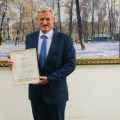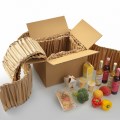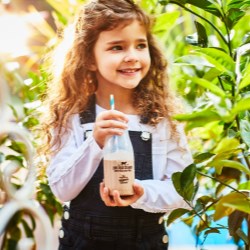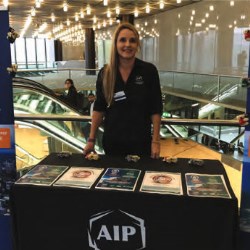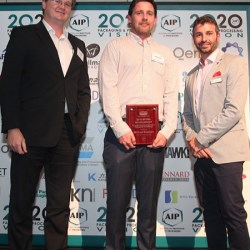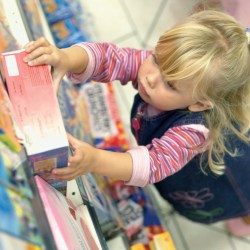If this is your company, CONTACT US to activate Packbase™ software to build your portal.
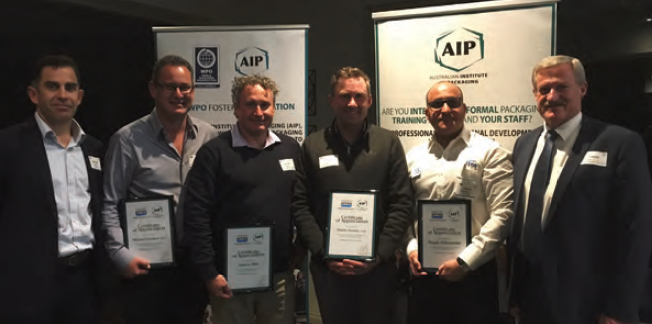

If the venue had served bratwurst and beer in steins the more than seventy members of Australian Institute of Packaging (AIP) and The Australian Packaging and Processing Machinery Association (APPMA) who assembled at Box Hill on 7 June 2017 would have considered that they were at Interpack in Dusseldorf Germany. But the country most distant from that city had to rely on secondhand information from members who had been fortunate enough to attend. It was far from a second- rate group that gave their overview of the world famous packaging exhibition.
The newly crowned president elect of the World Packaging Organisation (WPO), our own Pierre Pienaar FAIP, CPP led the stream of presenters. In the audience were the newly appointed President of AIP Dr Carol Lawrence FAIP and the Victorian Chairman Anthony Peyton as well as experts in every discipline of the packaging industry.
Pierre talked about the WPO and the benefits that Australia now has with a global network open and accessible. With its connections through the United Nations countries that had closed borders for information exchange are now connected. The WPO charter for education is to take it to those who have not had it before and to open awards like World Stars to more nations.
Interpack was the venue where WPO handed out many awards and accolades. One accolade was to AIP for its involvement in the Save Food Program. Over 30 to 35% of food produced is wasted which if curtailed would feed many millions of undernourished people. Pierre made two standout statements about Interpack ‘put it on you bucket list’ and ‘someone in the world will know the answer’.
Magdy Eldessouky of tna Australia gave a polished overview of his company’s involvement at Interpack and the groundbreaking innovation that they had used at Interpack. Unable to obtain enough space at the exhibition they set up a satellite display at a warehouse near the Airport and bussed delegates to and from. They found that those who were captive at their off campus display were totally focused and more than ordinarily attentive. We were given a slideshow of some of tna equipment that comes from six manufacturing plants across the world.
One was the tna arctic® 3 packaging solution using polyethylene and laminated film to package fresh and frozen foods. Made from anticorrosive stainless steel, the machine meets stringent sanitary requirements, handles wet wash-down cleaning, and is suitable for wet and cold environments. It comes with special software that holds pre-set recipes, bringing simplicity and flexibility to your packaging process.
Jason Goode FAIP of Simplot Australia was still overwhelmed by his experience and talked about digital printing and the explosion of technologies around it. The technology was hardly visible at Interpack 9 years ago, but now is ‘around every corner’. He was also excited to talk about the high number of flexible bag manufactures, printing a great range of vibrant designs (Matt, gloss, clear windows, metallic, embossing) and bioplastics that nine years ago had one small display area but this year took up half a hall.
Being part of the few food manufacturers operating in Australia, Jason had picked up many innovative technologies at the exhibition. Bioplastic is being made from potato starch which is a byproduct of large scale potato processing. In question time Jason explained that the volume of potato byproduct here in Australia may not be sufficient to set up similar processing currently, but hopes fossil fuel replacement materials like this will become more economic as volume grows.
His ‘take it to the bank’ was the German company Südpack online store for digital orienting. Detailed on the company web site as follows:
“This service is complemented by a separate online shop for digital printing, the shop makes it easier for manufacturers of food or technical devices to select and print small batches of film for a specific product. A special configurator recommends films to suit the customer’s products. In the next step, the printing information is uploaded and the complete film solution is put together. Customers still enjoy the full support of the Südpack experts when ordering online. Südpack carefully reviews the film before it is printed. We are the first film manufacturer in Europe to offer customers the option of ordering customised printed films quickly and easily online. Customers can configure and order films from a desktop computer or on the go via tablet or smartphone. We also offer flexible express deliveries to meet tight deadlines. We see this as a truly future-focused, meaningful approach."
A part from Jason’s visual experience he was taken by some of the sensory technologies offered to packaging. One such was tactile printing on flexible packages. In line laser perforations on a tray sealer to optimise respiration for chilled vegetables highlighted the need to understand how packaging and product works together and need to be understood in order to optimise the supply chain solution.
Jasson Mills of Amcor Flexibles Asia Pacific threw up four themes for debate. Speed to market; paper board packaging, on the go packages and optimism. He talked about tool-less printing and shrink film speeding up dwell time to market.
An example is a canning line where blank cans are purchased and when filled a shrink sleeve bearing all the graphics and description of the contents is applied. On the go packages are now coming with handles for ease of removal by consumers. An example was six tetra packs of beverage with a handle. Easy open snap packs and resealable paper packs were at opposite ends of the scale as was a share pack for take away food that opens up into two distinct trays.
Jasson left us with a focus from the exhibition. ‘What’s new’ had replaced the ‘how much’ first question by visitors. Michael Dossor MAIP of Result Group wound up the evening and told us that his pedometer had recorded around 10 kilometers a day at the exhibition, but he had the energy to stand and deliver.
Relating Doss’s Take 4 he proffered that the packaging industry was for everyone, flexible packaging rules, the human interface is vital and although he saw little new technologies there was a lot of innovation.
Flexible packaging has evolved to much more than a pillow pack and the uses seem endless. Retort pouches have a chance to replace cans and thermoformed packaging for products such as cosmetics are competing strongly. Michael feels that thermoformed trays could be made from a reel of material which would certainly close the gap. Human and machine interface is moving rapidly. All apps on mobiles phones can be moved to operate machinery. Training and troubleshooting are built into the machine reducing down time during and after instillation.
Michael was enthusiastic about a Spanish company Flexomed that manufactures macro perforated and transparent functional films that delay the degradation of perishables. The Australian Institute of Packaging (AIP), in conjunction with the World Packaging Organisation (WPO), has established the Save Food Packaging Awards for Australia and New Zealand, that recognises companies who are developing innovative and sustainable packaging that minimises food losses and food waste, extends shelf life and improves the supply of food.
At Interpack 2017 Flexomed was the Gold Star winner. The company was conferred with an award in the Packaging saves Food category. The summary of the award winning package was thus:
Doypack bag with zip closure, handle and macroperforated,(sic) laminated with an inner material that absorbs ethylene from fruits and vegetables! Tested on strawberries, bananas, eggplant and vine cherry; the shelf life is extended and reduced weight loss improving the food appearance. The evening concluded with a question time which brought us to thank the presenters whilst they were presented with a memento by Anthony Peyton. As they say in Dusseldorf about the 2020 Interpack ‘lege es auf deine Eimer- Liste’ (put it on you bucket list).
Written by Michael B Halley FAIP


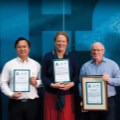
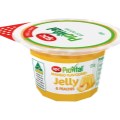
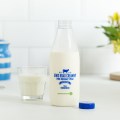

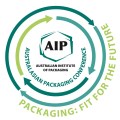
.jpg)



